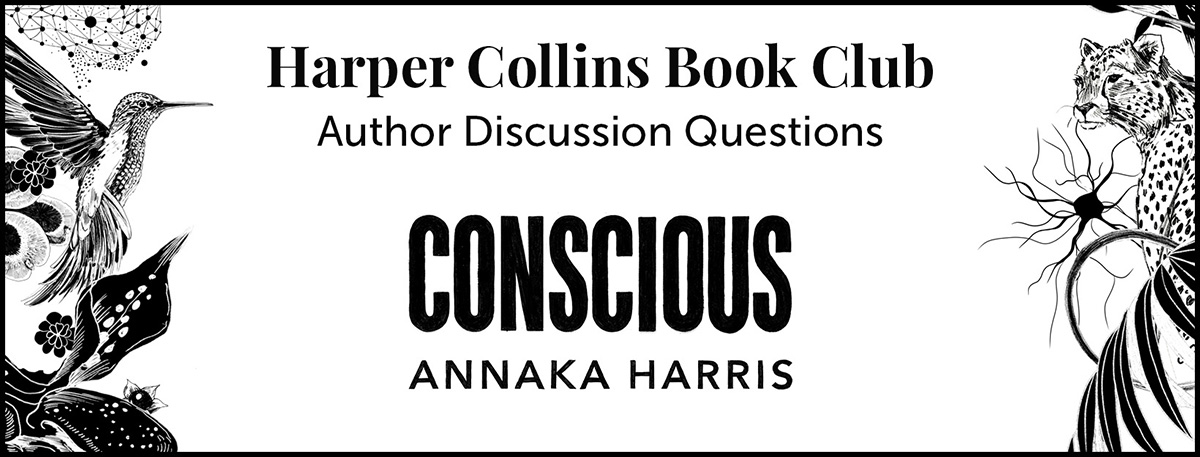
Discussion Questions for CONSCIOUS, by Annaka Harris
1. What makes consciousness such a mysterious phenomenon?
2. The concept of emergence (a phenomenon that is not predicted by the constituent parts, such as a snowflake or a wave) is often offered as one solution to the mystery of consciousness. Do you agree with the assertion that this isn’t a satisfying explanation?
3. Can there be evidence of consciousness that is observed from the outside of a physical system, such as a human brain? What do you think might constitute such evidence?
4. Can you point to any way in which consciousness conclusively affects a physical system like a brain?
5. Do you think we can ever scientifically study consciousness (in its most basic form), or is it forever out of the reach of science because of its subjective nature?
6. Do you agree that the experience of “self”—the feeling that you are a single, solid entity at the center of your consciousness that does the experiencing—is an illusion, in the sense that it’s not an accurate representation of reality?
7. The split-brain research—conducted on patients who have had surgery as a treatment for epilepsy that severs the connections between the left and right hemispheres of the brain—seems to imply that a person’s consciousness can be split into two separate streams of experience. Does this research, or any other neuroscientific research presented in the book, change the way you previously thought about consciousness?
8. Do you agree with the conclusion that conscious will (or free will in general) is an illusion?
9. Do you think it’s possible that consciousness is a simple phenomenon, rather than a very complex one?
10. Do you think it’s possible that consciousness might not be “doing” anything beyond giving some collections of matter a dimension of experience?
11. Do you think it’s possible that all matter entails some level of conscious experience?
12. Does it seem impossible to you that consciousness could be a fundamental feature of all matter, as it is described in the category or theories referred to as panpsychism? If so, give your reasons why.
13. In what ways could the “hard problem” of consciousness potentially overlap with quantum physics?
14. Have you read any recent theories about consciousness, such as Donald Hoffman’s work, that have informed your thoughts on the subjects and arguments presented in CONSCIOUS?
15. Did reading CONSCIOUS shift your perspective, expand your thinking, or change your beliefs about anything?

